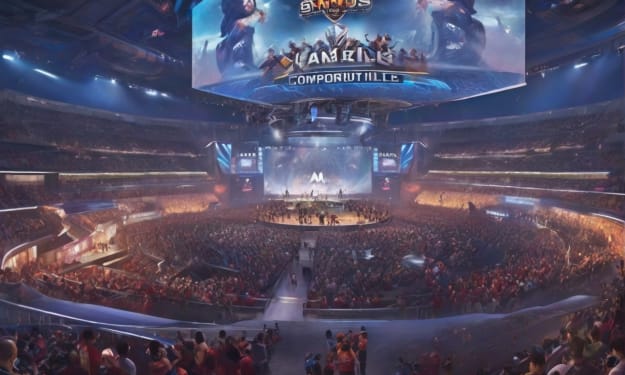
Socialization is an important aspect of gaming, whether you're playing online multiplayer games or participating in local gaming communities. Here are some life hacks to enhance your social experience as a player:
Join gaming communities: Seek out online forums, subreddits, and social media groups dedicated to the games you enjoy. Engage in discussions, share tips, and connect with fellow players who share your interests.
Utilize voice chat: If you're playing multiplayer games, using voice chat can greatly enhance your socialization. It allows for real-time communication, coordination, and building relationships with other players. However, always remember to maintain a respectful and friendly attitude.
Attend gaming events and conventions: Look for local or online gaming events and conventions where you can meet fellow gamers. These gatherings provide opportunities to make new friends, participate in tournaments, and engage in shared experiences.
Stream or watch gameplay: Consider streaming your gameplay on platforms like Twitch or YouTube, or simply watch others stream their gameplay. This creates an interactive environment where you can engage with a wider gaming community, chat with viewers, and even collaborate with other streamers.
Create or join gaming groups/clans: Many games have built-in features for creating or joining groups, clans, or guilds. These communities often have dedicated Discord servers or other communication platforms where you can connect with like-minded players, form teams, and organize gaming sessions.
Attend LAN parties: Organize or participate in local area network (LAN) parties, where gamers bring their computers or consoles to a specific location for multiplayer gaming sessions. It's a fantastic opportunity to meet and socialize with fellow gamers face-to-face.
Be a positive and supportive player: Foster a friendly and welcoming atmosphere while gaming. Offer help to new players, congratulate others on their achievements, and avoid toxic behavior. Being a positive influence can attract like-minded individuals and enhance your social interactions.
Engage with game developers: Follow game developers and their official social media accounts. Participate in community events, provide feedback, and share your thoughts on the game. Some developers actively engage with players, and you may have the chance to connect with them directly.
Remember, building lasting relationships and a positive social experience takes time and effort. Be patient, open-minded, and respectful to create a thriving social gaming experience.
Balance between Game and Lesson:
Balancing games and lessons is essential for effective learning experiences. While games can be engaging and enjoyable, lessons provide the necessary educational content and structure. Here are a few key considerations for achieving a balance between games and lessons:
Learning Objectives: Clearly define the learning objectives or outcomes you want to achieve. This will help you determine the appropriate balance between games and lessons. Identify the key concepts or skills that need to be taught and decide how games can support and reinforce those learning goals.
Game Design: Integrate educational content into the game design itself. Incorporate elements that encourage active learning, problem-solving, critical thinking, and collaboration. Ensure that the game mechanics align with the lesson's objectives and provide meaningful learning opportunities.
Progression and Feedback: Provide a clear sense of progression and feedback within the game. Games should offer challenges that gradually increase in difficulty as learners advance, allowing them to apply and reinforce what they have learned. Feedback mechanisms should be in place to provide immediate and constructive feedback on performance, helping learners understand their strengths and areas for improvement.
Integration of Lessons: Integrate lessons and content within the game context. Break down the learning material into smaller, digestible units and present them in a way that seamlessly connects with the game mechanics. Use narrative elements, in-game quests, or problem-solving scenarios to embed the lessons into the gameplay, making them relevant and engaging.
Assessment and Reflection: Incorporate assessment and reflection opportunities within the game experience. Provide learners with opportunities to assess their progress, reflect on their performance, and apply what they have learned to real-life situations. This can be done through quizzes, challenges, simulations, or debriefing sessions after gameplay.
Flexibility and Adaptability: Allow for flexibility in the learning process. Some learners may require more time or different approaches to grasp certain concepts. Games can be adaptive, offering personalized learning paths and adjusting the difficulty level based on individual progress. This ensures that learners stay engaged and challenged at an appropriate level.
Supervision and Guidance: Provide appropriate supervision and guidance during gameplay. Educators or facilitators should be available to answer questions, clarify concepts, and provide support when needed. They can also facilitate discussions and reflection on the educational content presented in the game.
Remember that the balance between games and lessons may vary depending on the subject matter, age group, and individual learners. It's important to continuously evaluate and adjust the balance based on feedback and learning outcomes to ensure an effective and engaging learning experience.






Comments
There are no comments for this story
Be the first to respond and start the conversation.